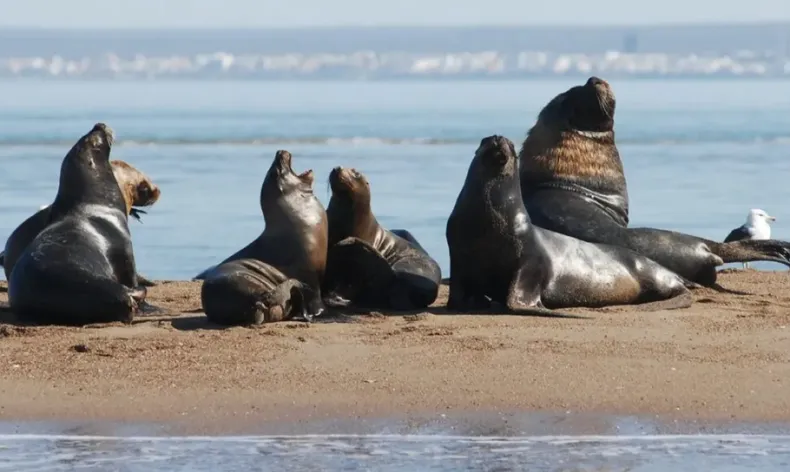At first, when the first cases appeared in southern Argentina, the news did not seem that relevant, but over time the situation worsened to the point where the migrations carried out by these animals, which increased the number of birds they spread, arrived in Buenos Aires. Coast of Enos Aires, “stopover” in Chubut Province.
Today, hundreds of mammals have died due to avian influenza near the Valdes Peninsula (Chbut department).
According to official reports, some 1,300 dead mammals have been found, although they assured that despite the high number, this was not in any way guaranteed and could put the species at risk of extinction.
Mar del Plata is no exception. About half a thousand sea lions were found dead in successive days as the disease began to spread, which arrived in mid-August and initially caused much alarm due to the close proximity of the sea lions to the ship’s crew. Yellow and the public visiting typical places in Mar del Plata.
Although the disease is far from eradicated, birds carry it around the world, so there are numerous cases in different countries, explains the head of the SENASA Buenos Aires Regional Center South., Manuel Baldovino arrive fishing a few days ago.
Today, the same news hit Brazil, where at least 164 specimens were found succumbing to the same disease on beaches in the state of Rio Grande do Sul.
The specimens were found nearly 50 kilometers off the coast near the Uruguayan border, days after it was reported that around 400 sea lions had died in Uruguay due to bird flu.
Brazil’s Ministry of Agriculture and Livestock reported that the first foci of marine mammal infections in Brazil since early October was another beach in the state of Rio Grande do Sul, known as “Cassino.”
Despite this situation, the government Luis Inacio Lula da Silva It continues to claim to be a “disease-free country” as no commercial production has been achieved to date.
It is also worth noting that avian influenza has been reported in other Latin American countries such as Chile and Peru, where marine animals have also been affected by the virus, which causes respiratory, neurological and muscular disease in mammals. The virus can be spread through the mouth. According to investigations by health department professionals, it is spread through excrement and secretions.
In neighboring countries, they don’t do much more than we do, they give the same advice, clarifying that human contagion is actually unusual, although authorities advise people not to approach dead or sick animals and to keep your pets away out of the spotlight.

